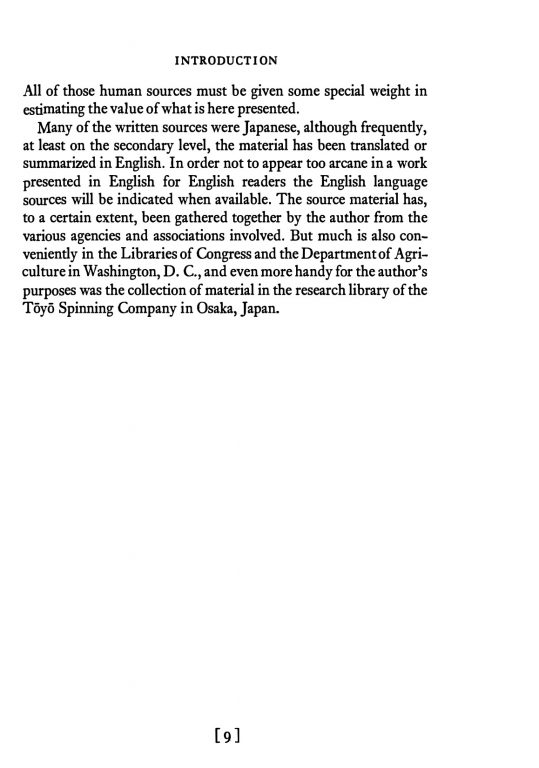Toward an Orderly Market: An Intensive Study of Japan’s Voluntary Quota in Cotton Textile ExportsJohn Lynch
Other Books (1968) pp. 1–215
The point being made here is that the so-called voluntary controls in cotton textile exports imposed on themselves by the Japanese in 1955 continue to influence their international trade in these products today. Beyond that, many other Japanese industries and export groups have found it convenient and expedient to follow the lead of the cotton textile exporters by imposing voluntary quantity restrictions on their exports. It certainly seems to be a worthwhile project to cast the light of description and analysis on these voluntary controls. The sort of international arrangement they represent seems to reflect real world conditions much more accurately than the ideals stated in the international conventions made after World War II. The voluntary quota imposed by the exporting country has turned out to be the measure which has proved satisfactory to those elements in the importing country who seek protection from foreign competition. As yet this device has not been described in the textbooks on international trade. Most texts devote a section to a description of the barriers to, or the restrictions imposed upon the freedom of international trade. In the subdivision of that section where quotas and international commodity agreements are portrayed, something should be said about the Voluntary Export Quota, which in the case of textiles began as a quota and evolved into a special international agreement.
1968. 215 pages.
Hardback. [Out of print]
